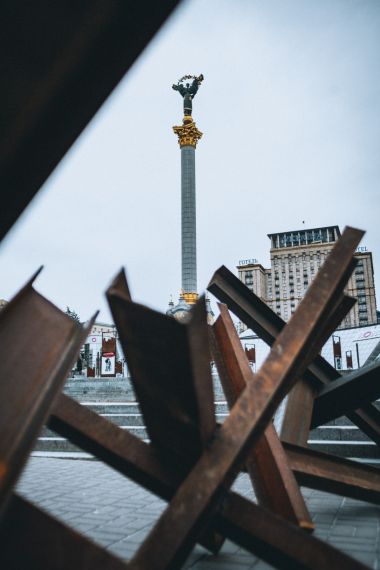Homes for Ukraine scheme is 'failing refugees'

There have been calls for changes to the government's Homes for Ukraine scheme after reports of refugees being targeted for sex or being made homeless.
Christian charity CARE said the scheme was "failing refugees" and that it was concerned about "serious" safeguarding failures.
It is calling on the government to make "urgent" changes to the scheme, which was launched after the start of the war to allow Brits to take people from Ukraine into their own homes.
Under the scheme, refugee hosts are entitled to £350 in financial support a month, a condition of which is a number of checks, including a home visit.
Since the scheme's launch, there have been reports of refugees facing homelessness after a relationship breakdown with their host. Some female refugees have reported being targeted by predatory men.
CARE said that the safeguarding advice currently in place in England is "limited" and "lacks detail on ensuring welfare in the longer term".
Lauren Agnew, CARE's trafficking policy expert and an adviser to the Northern Ireland Assembly, said that the government must improve the checks being made on potential hosts.
In particular, CARE is urging changes to be made so that women and children are not placed with single men. It also wants to see enhanced DBS checks on all potential hosts.
The calls follows a report in the BBC claiming that in some local authorities, nearly a third of potential sponsors are single men over 40, many of whom are offering to host single women in their 20s and 30s.
"The idea of Homes for Ukraine is undeniably laudable but as the weeks have passed, problems have become increasingly apparent," she said.
"We warned that people with malign intentions will use the scheme to exploit women and children. Reports of men propositioning Ukrainian women, both online and after they have been placed, confirm our fears.
"We also remain concerned that criminal networks engaged in trafficking and commercial sexual exploitation will be viewing the influx of vulnerable, displaced people as an opportunity to recruit new people to exploit.
"Refugees who have been made homeless will be particularly vulnerable to gangs offering them a place to stay before forcing them into modern slavery, whether agricultural labour, domestic servitude, county lines activity, or the sex trade."
Agnew went on to call for a crackdown on unofficial social media groups offering to match up refugees with hosts amid concerns that some are creating "opportunities for exploitation".
She said that a joined-up approach was needed to ensure standardised checks across all local authorities.
"Mistakes have been made, and cannot be reversed," she said.
"The most important thing the government can do now is ensure that more mistakes are not made in future. We cannot allow the double injustice of letting down those we have pledged to help."











